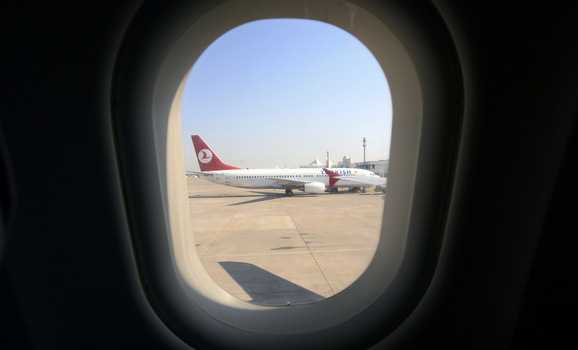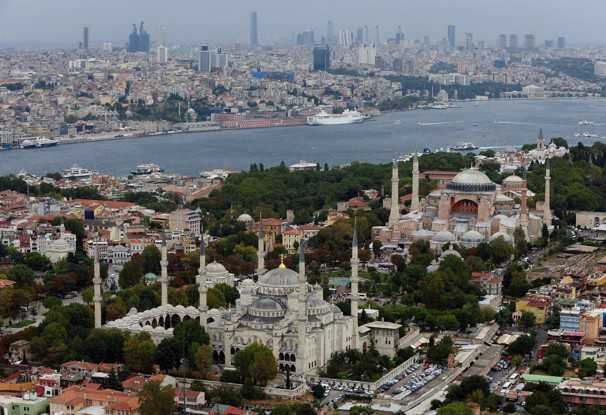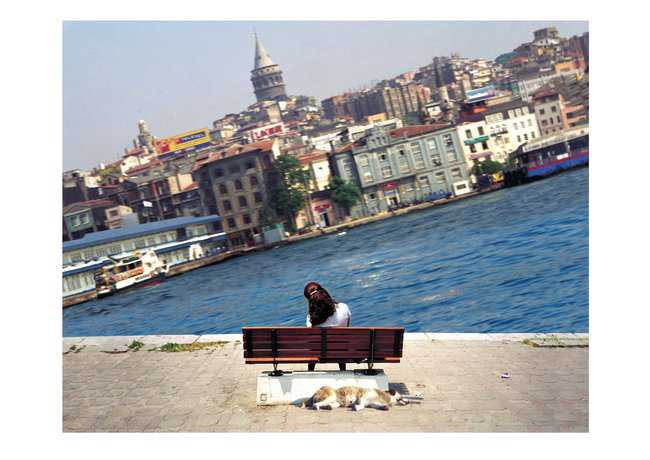They fear that proposed amendments to religious legislation could makes things worse.
By Gita Elibekian and Seda Muradian in Yerevan (CRS No. 480, 13-Feb-09)
Armenian Jehovah’s Witness Margarita Hovhannisian said she has not seen her son since he was taken away from her by her husband a year ago.
Two legal appeals have failed, and she is beginning to suspect the legal system is biased against her because of her faith.
“My husband kidnapped our child, justifying this by saying he did not want to leave him with a mother who was a Jehovah’s Witness,” she said.
While Armenia technically guarantees freedom of worship to all faiths, Hovhannisian says that this is not her experience.
She cited a court document issued to her, which she claims effectively states that it would not be in the child’s interests to be returned to his mother.
Jehovah’s Witnesses, who are a tiny minority in Armenia, say they are facing increasing prejudice as a result of their beliefs.
The group, which emerged from a 19th century American Bible study group and now claims seven million members worldwide, is controversial for its members’ refusal to serve in armies or to undergo blood transfusions.
“In Armenia, the negative approach towards the Jehovah’s Witnesses is becoming ever more intolerable, especially since 2004, when the organisation granted us permission to operate here,” said Tigran Harutiunian, spokesperson for the faith.
But things may about to become harder for his co-religionists in Armenia, where most people belong to the Armenian Apostolic Church – an ancient form of Christianity that dates back to 301 AD.
Amendments to the country’s laws on religious freedom currently before parliament would restrict faiths’ rights to evangelise – or to “hunt for souls” as the officials behind the proposals put it.
Armen Ashotian, chairman of the parliamentary commission on science, education, culture, youth and sport, who presented the draft changes to parliament on February 5, explained the terminology used.
“We tried to create a definition of the hunt for souls and came up with the following – in means preaching among a religious population or among people who do not belong to any religious confession, when this is conducted with material incentives, or with the use of physical, moral, psychological or material compulsion, and creating distrust or hate of other religious organisations and their followers,” he said.
The co-authors of the amendments have also suggested changing the minimum number of members that a faith can have before it gains registration from 200 to 1,000 members, which could cause problems for small groups.
If the proposals are passed into law, faiths would have three months to re-register.
Proselytising Christian groups of western origin began operating openly in Armenia and other states in the more liberal atmosphere created after the collapse of the Soviet Union in 1991.
Many Armenians dislike having their doorbells rung on a regular basis by small religious groups seeking to convert them.
“I always slam the door on these sect members,” said Hasmik Qosian, a resident of Yerevan.
Vardan Asatrian, the head of the office for national minorities and religions in the government office, said this was a commonly-held opinion.
He said people were tired of being approached in this way, and argued that a law which restricts proselytising was long overdue.
“That there aren’t specific laws controlling this… is an omission. This situation has been neglected, and it seems we spend more time protecting the rights of religious minorities than those of the majority,” he said.
“We need to create equality.”
The Jehovah’s Witnesses say they do not force people to join their organisation or pester them with demands,
Religious minorities report that discrimination comes from official sources in the country and is a constant blight on their lives.
Hasmik Mkhitarian, who is trained as an English teacher, said she cannot get a job in her home town of Vanadzor because she is a member of the Church of Jesus Christ and the Latter-Day Saints, also known as the Mormons.
“I studied our faith for a year and a half in London, and noted that in my CV. The problem is that when people read that, they don’t even invite me to an interview,” she said.
“When I ask what’s wrong, they directly tell me that I belong to a sect, and that people like me should not be teaching in schools.”
She blamed the Armenian Apostolic Church for discouraging any alternative forms of worship.
Shmavon Ghevondian, a cleric from the Armenian church, told IWPR that any religious group that did not follow its canons counted as a “sect”.
“Religion is dividing the nation, and if ethnic differences are added to this, then we have a far from attractive future for our three-million strong nation,” he said.
He said he thought the Jehovah’s Witnesses were the most dangerous of the religious groups to appear in post-Soviet Armenia. He added that he thought religious freedom in the country was unnecessary and had been introduced solely to obey the rules of European institutions.
Armenia has had to adopt certain laws to satisfy the Council of Europe, a continent-wide body that insists that its member states respect human rights.
This legislation included a measure under which conscientious objectors are allowed to avoid military service and undergo alternative forms of service instead.
The council’s criteria state that genuine alternative civilian service which is not under the control, auspices, or supervision of the military must be provided to conscientious objectors.
But Jehovah’s Witnesses in Armenia say that even with new legislation in place, they still have to serve in a militarised atmosphere, obey military orders and work under the military police.
Hayk Khachatrian, in his mid twenties, refused to serve in such a climate and, as a result, received a two-year jail sentence in 2005.
Eight-seven other Jehovah’s Witnesses are in Armenian prisons for their refusal to do alternative service.
“How can I follow our precepts if my brothers in faith and I – Jehovah’s Witnesses in Azerbaijan – start to shoot at each other?” asked Hayk.
Human rights activists say Armenia has not tried hard enough to accommodate the wishes of the Jehovah’s Witnesses, despite pressure from the Council of Europe.
“They all refuse to do alternative service because of its great similarity to military service,” said Avetiq Ishkhanian, chairman of the Helsinki Committee of Armenia.
“In its resolution 1532 adopted on January 23, 2007, the Council of Europe called on the Armenian authorities to re-examine the law on alternative service, but this has not happened.”
Yet even if legal changes are made to accommodate the beliefs of Jehovah’s Witnesses, they are still likely to face widespread prejudice.
Hovhannisian’s husband Arthur Torosian said he will not allow her access to her child as long as she follows this faith.
“She went completely mad after she joined this sect. She took him all the time to these meetings; she even held his birthday party there. My son told me these things,” he told IWPR.
“You cannot bring up a child in endless meetings which will turn him into a Jehovah’s Witness. I will bring him up myself, and when he grows up he can decide for himself.”
Gita Elibekian is a correspondent for Armenia’s RadioLur social radio. Seda Muradian is IWPR’s Armenia director.




